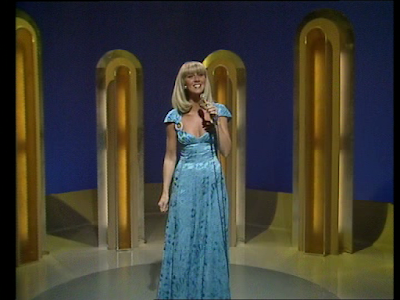The fictional panel
show-within-a-show would be a particularly dismal watch this week, with guest
stars Jo Brand, Paul Foot, Ronni Ancona (who refuses to do impressions) and -
especially unimpressive - Heat magazine's Boyd Hilton. The last of these
is a particularly grizzly period touch, reminding the present-day viewer of how
prominent that publication was for a few years in the noughties, before the
Internet swept it away.
Annually Retentive has an unusual structure. You assume that there are two simultaneous timelines (the panel show and the backstage preparations), but it's actually less linear than that. About half a dozen different stages of the production are shown in intercut scenes (Rob and the booker, Rob and the producer, the team meeting, the dressing room, etc.), with the viewer not told which order they occur in (you can work it out, but it is quite hard work).
As a lot of the comedy comes from the Brydon character talking about other comedians behind their back and then having to deal with them in performance, the effect of this editing making the programme seem more interested in demonstrating a thesis about media representation of celebrity than it is in telling a story. You can see why it didn't much appeal to a wide audience.
This episode has some of the series' most scathingly specific takedowns (and best moments), when a fed-up Brydon performs lengthy impersonations of Johnny Vaughan and Ross ("I appeal to students") Noble.
Annually Retentive has an unusual structure. You assume that there are two simultaneous timelines (the panel show and the backstage preparations), but it's actually less linear than that. About half a dozen different stages of the production are shown in intercut scenes (Rob and the booker, Rob and the producer, the team meeting, the dressing room, etc.), with the viewer not told which order they occur in (you can work it out, but it is quite hard work).
As a lot of the comedy comes from the Brydon character talking about other comedians behind their back and then having to deal with them in performance, the effect of this editing making the programme seem more interested in demonstrating a thesis about media representation of celebrity than it is in telling a story. You can see why it didn't much appeal to a wide audience.
This episode has some of the series' most scathingly specific takedowns (and best moments), when a fed-up Brydon performs lengthy impersonations of Johnny Vaughan and Ross ("I appeal to students") Noble.































